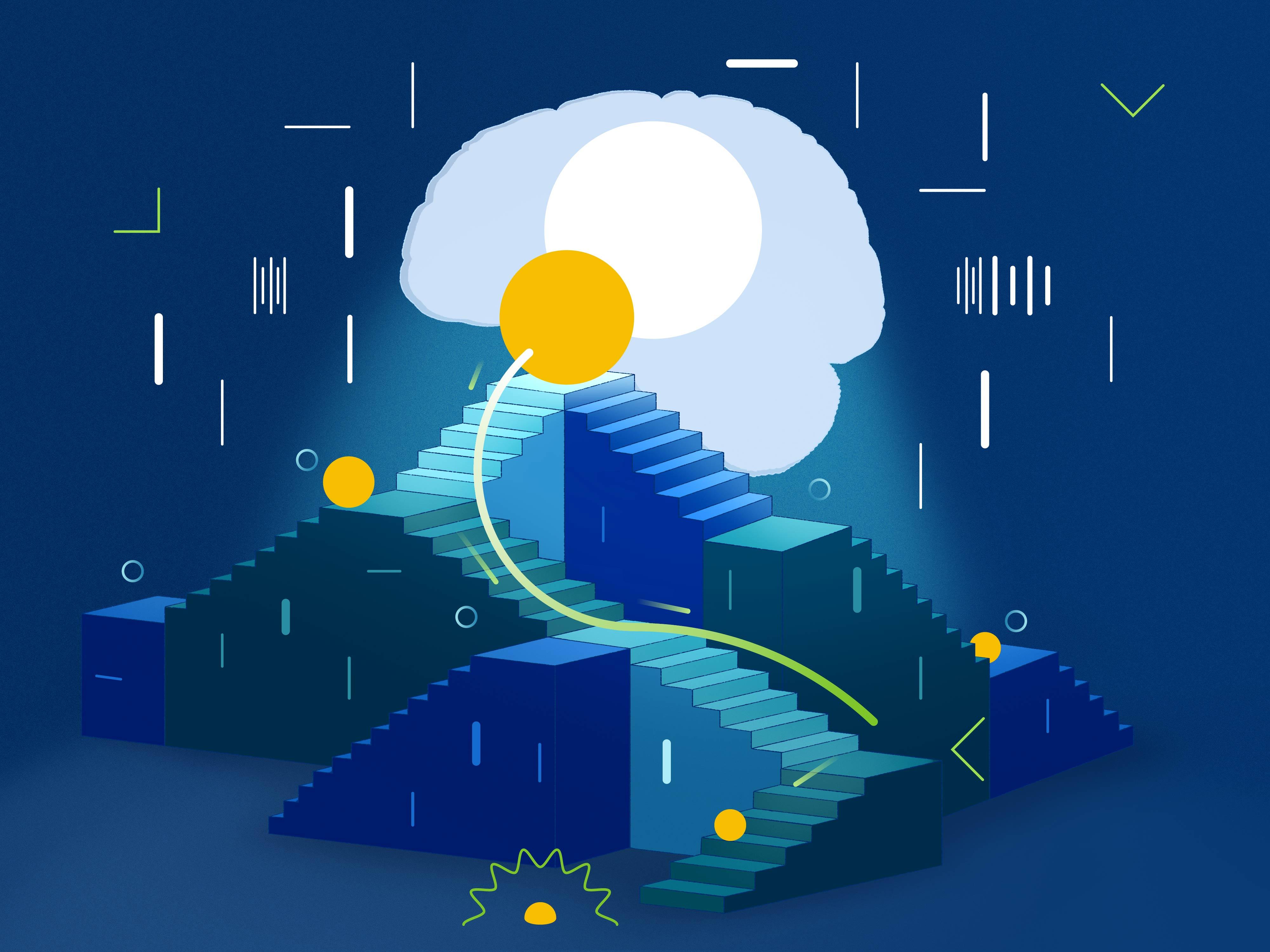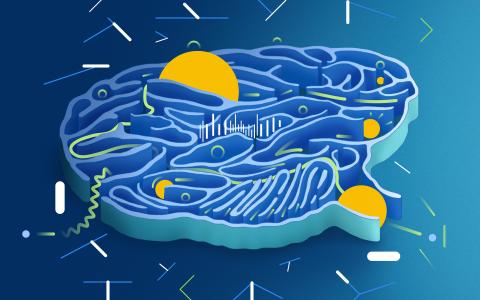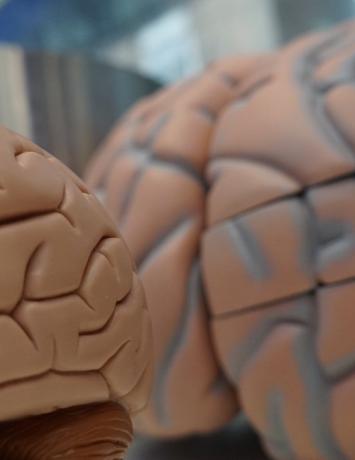
The neuroscience of learning: 12 tips to optimise your brain
Neuroscientists spend their careers studying how the brain acquires, processes, stores and retrieves information. Do they apply that knowledge in their own lives?
We asked leading researchers for their top brain hacks when it comes to learning, and we’ve distilled their answers into 12 key tips.
1. Teach
"My main hack, which is not original, is the power of teaching as a way to improve your own understanding. This is a technique popularized by Richard Feynman. For instance, if I read something and it's familiar, I think, "Oh, I know that." But then if someone asks me to regurgitate it, for instance in an exam, I often find that I'm unable to do it. Or if I have to teach someone, in the process of regurgitating it, I realise that I have some misunderstanding.
In the team that I work in, I frequently teach things on the whiteboard and also get others to teach me on the whiteboard. I find that just the act of talking something through in a logical manner really tests whether you understand it yourself, and sometimes it's a cool way to find out you don't. And that's exciting."
Dr Tessa Montague, Columbia University
2. Sleep!
"Sleep well."
Dr Andreas Lüthi, Friedrich Miescher Institute for Biomedical Research
"Get lots of sleep and read a lot! Keeping a broad sense of what is going on in multiple fields is really important so you can combine depth with breadth."
Blaise Agüera y Arcas, VP and Fellow at Google Research and Google’s CTO of Technology & Society
3. Repeat
"Repetition matters. So do good timing and time management. One thing that has helped me is that if there is something I don’t understand, I try not to get stuck with it for a prolonged time. When I read a research paper, for example, and there is something I don’t understand, I try my best to understand just a little bit. But if I still don’t, I will just move on to the next section and come back to it later so that I don’t get stuck with one issue for too long. But I do come back to it."
Dr Jianhua ‘JC’ Cang, University of Virginia
"The first thing that comes to mind is the role of practice. Even in food-caching birds, which are experts in memory, you still see them going back and checking their cache sites to see if their caches are still there. We haven’t looked at this yet, but it’s possible this process of checking or even mental rehearsal could be important for cementing memory for the long term."
Dr. Hannah Payne, Columbia University
4. Use your natural rhythm
"One important aspect of learning is timing it with your optimal circadian rhythm. This varies from person to person; for some, it's in the morning, while for others, it's in the evening. When recalling information for an exam, it's essential to train your recall at the same time as the exam and under similar conditions, such as studying without distractions if the exam environment is quiet.
As for a top brain hack, it's simple: get enough sleep. Taking sleep seriously is crucial for optimal cognitive function and learning."
Professor William Wisden, Imperial College London
"What's clear is that there are states where your brain is more receptive to new and incoming information, or is able to learn better.
And I think it is worth remembering that the state your brain is in is as important, probably, as what book you're using to study, or anything, or how hard you're working.
Now, how do you get your brain into the right state? I don't know exactly what the right answer is. For some people it might be something like meditation, or calming, or music. I don't have a single answer, other than it is really important to think about how to get your brain in the right state to absorb what you're learning."
Dr Vikaas Sohal, University of California, San Francisco
"If something is hard and you're not in the right mood, do something else and come back to it later. Sometimes, ideas will bubble up from your subconscious when you least expect it."
Dr Dominic Evans, Max Planck Institute for Brain Research (Frankfurt am Main)
"The concept relates to the notion of spontaneously fluctuating states within the brain. Just as there are varying states of engagement, with some being more optimal for learning than others, timing one's learning activities to align with these states could potentially enhance learning outcomes. This idea parallels the practice of consuming coffee before studying to increase alertness and productivity. Even without external stimulants, the brain naturally experiences fluctuations in its internal states, presenting opportunities to optimize learning based on these dynamics.
Understanding when the brain is in the optimal state for learning could significantly improve the efficacy of learning efforts. For instance, rather than staying up late to study continuously, prioritizing a good night's sleep could ensure a more engaged state for effective learning the next day.
Ultimately, the key takeaway is that the brain is dynamic and constantly evolving, with non-stationary processes at play. Recognizing and harnessing these dynamic states may offer a potent strategy for optimizing various cognitive functions, including learning."
Professor Steve Chang, Yale University
"Have fun and take your time! Value the fact that things are changing by themselves. You learn something, and then after you rest a little bit, it acts on you at some point."

Illustration credit: Gil Costa and Joana Carvalho
5. Start simple
"One thing that I have learned from my research is what works when it comes to training rats to perform very complex tasks. Learning how to train them has taught me a lot about the optimal ways you can learn a new complex skill.
The key elements that I now use in my training is that it is absolutely crucial to do this in a smart, gradual way, such that you start by learning simpler elements of the complex skill. Essentially, deconstructing complex skills into some simpler, manageable, attainable elements that you can build on.
If you try to do the whole hard thing at once, it is going to be very frustrating and impossible. But once it is broken down into elements that alone are accessible, you can really learn things that might have seemed impossible in the beginning.
Sometimes we might be tempted to jump through the early phases of learning because we think it is too easy and go straight to the hard stuff. But then we find that the hard stuff is just too hard.
Actually the things that seem simple are necessary building blocks. It is good that they are simple, because you need to always be at a place where what you’re learning is something that builds up and onto the skills that you already have. This is how a lot of subjects are taught in college.
For anybody who is trying to learn anything hard, there is a good reason why we start with simper elements! I think sometimes that is underappreciated."
Dr Marino Pagan, University of Edinburgh
6. Consider the context
"What we see in mice is that they slowly learn to adapt to conditions with strong motivational drive. I think training, practice and feedback on training is important to adapt to different conditions – whether you are a mouse or human.
I know that when my 10-year-old daughter has to prepare for an exam – the best way to help her is to put her in that context for some time, to help her handle her level of stress before she gets to the actual exam.
Also, the idea of having adaptive task difficulty is important. This is something that we try to do with mice – we try to design tasks that account for the fact that mice might be in different motivational states.
This adaptive approach is something that already exists in some teaching approaches. Whenever you feel a bit in distress, or you feel that you're not succeeding so well, the questions become a bit easier, and then they adapt, as you get more confident or more successful in your training.
I think this is useful whether it's in training mice or training students."
Professor Sami El-Boustani, University of Geneva
"In our research we found that you can’t optimise learning without understanding more about the learner. It is important to understand the way the learner responds to context, and this can be related to age, experience and genetics."
Prof Linda Wilbrecht, University of California, Berkeley
"We have one project in the lab on human learning where we ask: What if we treat a human like a mouse and we don’t give them any instructions on a very simple task? When we do give people instructions, they learned the task in two or three trials in a simple visual object recognition task. But when we don’t, half the subjects never learned. And we were very surprised. We did a bunch of experiments to understand why they didn’t learn and how they could learn better.
I think appropriate scaffolding is so important. One of the things we sometimes do well in university education and sometimes not, is providing that type of scaffolding to people. Do students have the resources to learn it in the way that is helpful for them?"
Dr Kishore Kuchibhotla, Johns Hopkins University
7. Remove distractions
"For me, one tip is to try to be as focused as possible on the task. I find it very important to reduce external inputs so that you reduce distractions. Then you can focus on what you want to learn and what you want to understand.
It’s perhaps not so easy nowadays! When I look back at my time as a student, I would print out papers and then just read those papers because there were no competing distractions. Now, I'm reading papers on an electronic device which has lots of notifications that are potentially distracting. If you can shut those off, I find it easier to have periods focused on what you want to learn. Just doing one task at a time helps for me.
The world is getting faster – there are probably going to be just more and more distractions – we’re going to need to learn to navigate that."
Dr Jan Gründemann from the German Center for Neurodegenerative Diseases (DZNE)
8. Get bored
"I think for creativity, rather than learning, boredom might be an answer. In science, as in arts, the crucial aspect is generating a new idea or asking the right question. Just like in the arts, where all the great artists were unique, scientists I admire often have very-out-of-nowhere ideas. So, something as simple as living a rich life, being exposed to various experiences, is one great brain hack that we tend not to think about.
The second one goes beyond reading books, listening to music, traveling, and meeting people: It is allowing yourself to get bored. Nowadays, it's challenging to experience boredom due to our busy schedules and constant smartphone use. However, having moments of idleness is important because it allows your subconscious mind to work in the background, potentially yielding new ideas or solutions to problems. It's essential to carve out time to be “mentally bored” or at least to disconnect, like going for a walk. As an example, the incredibly influential mathematician Henri Poincaré made this point when talking about thinking about problems, and my beloved author Neil Gaiman mentions it as a creativity booster.
For me, cycling to work is my time for thinking and generating ideas. I've been commuting along the same route for almost four years now, so I know it by heart. So I only need to be attentive to the traffic, and it's a perfect moment when my mind can wander and ideas can flow."
Dr Juan Alvaro Gallego, Imperial College London
9. Explore
"Exploration matters! When it comes to learning a new skill, such as a new sport or dance, to arrive at the optimal solution you have to try many different things. My advice would be to shed the shame we sometimes have about looking silly and just try to have fun with movement."
Dr Alice Mosberger, Columbia University
"The most interesting thing we learned at least in humans is that they learn better from practice. If you give them some instructions that tell them what to do or what actions to take, they can learn the rule from that. Whereas if we give people the rule, but don’t tell them what action to take, they don’t learn it. This is of course a very reduced situation, but I think there is something about active learning, which is that some people can learn just by reading a book, but other people need to test things out. One of the things our work is starting to show is that actively exploring and using that as a way of learning is really valuable. One implication is, if you want to learn about physics in high school for example, actually use your hands and test things out. Do some active learning experiments."
Dr Kishore Kuchibhotla, Johns Hopkins University
10. Don't rely on confidence
"One thing I've learned is that the confidence with which we remember things should not always be trusted. This insight comes from research on flashbulb memories, such as people recalling where they were during significant events like 9/11. In studies of this type of memory, individuals are interviewed shortly after the event and then again months or years later. It's remarkable how these accounts change over time while the confidence in the memory remains steadfast.
Personally, I could recount where I was during an event and be confident in my memory, only to realise at some later point that details were inaccurate, like the time of day. Understanding that memory confidence can be unreliable has broader implications, even in personal relationships, as I've come to appreciate over time!"
Professor Florian Mormann, University of Bonn, Germany
11. Stay excited
"I think having a balanced life is important, as is a good community support system. The more you think about research questions and remain excited about whatever it is you're passionate about, the easier it is to learn new things and keep up momentum."
Professor Lauren Orefice, of Massachusetts General Hospital and Harvard Medical School
12. Reward
"Recognising the importance of rewarding oneself along your professional (or vital) journey is my last obvious contribution to "life hacks". Whether it's treating yourself to a new book, attending a concert, or indulging in a favourite dessert, these small rewards play a crucial role in maintaining motivation and sustaining happiness throughout the process. This is especially important for scientists, when projects take very long so you don’t get many rewards until a scientific paper is out, which often is years later."
Dr Juan Alvaro Gallego, Imperial College London


